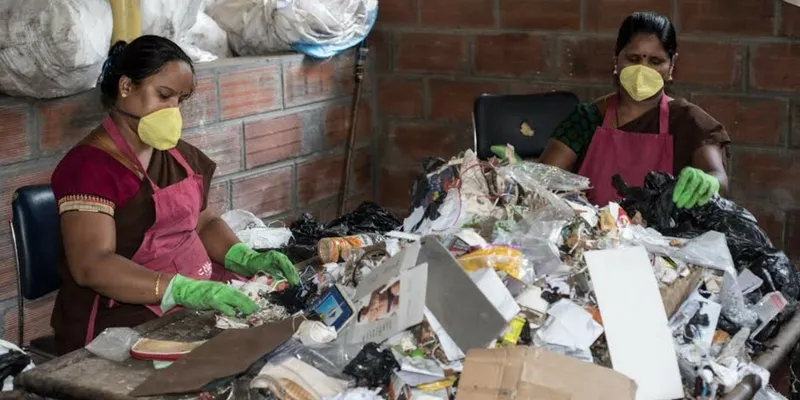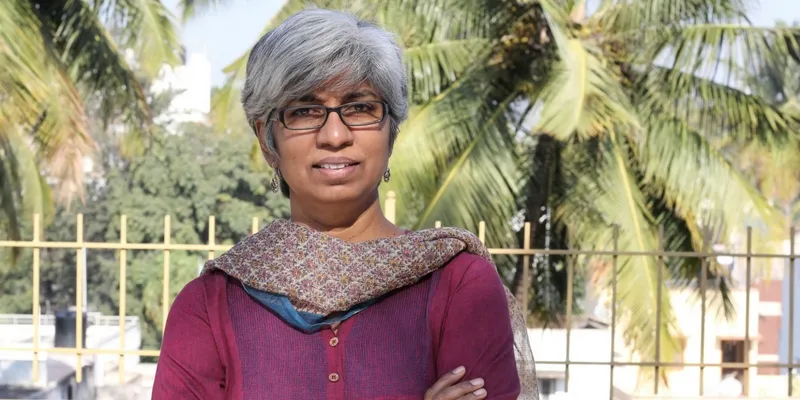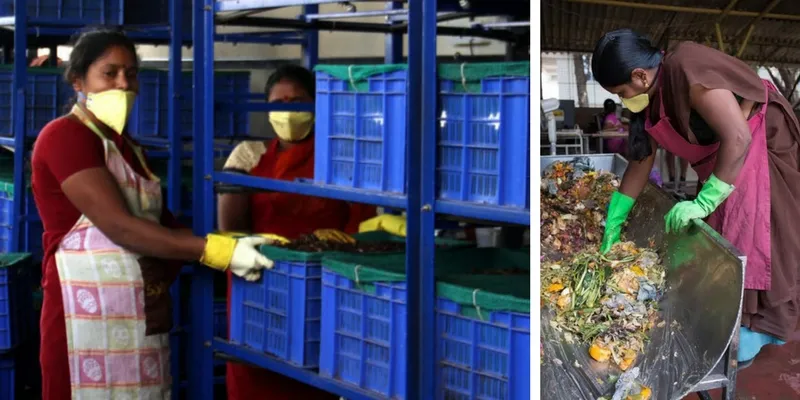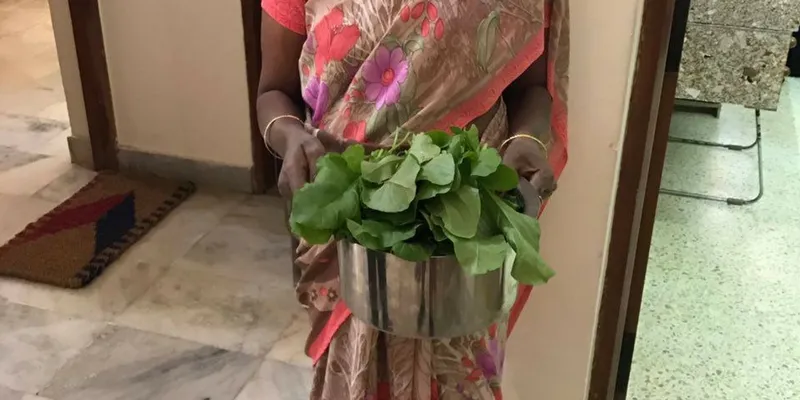This Bengaluru-based startup prevents 25 tonnes of waste from reaching dump yards on a daily basis
Through composting and recycling, Saahas Zero Waste, a Bengaluru-based startup, is redefining the meaning of waste management.

Have you wondered where all the stuff we buy or use goes to when we throw it away? Once the waste collector takes away the trash, we don’t seem to care much about its whereabouts, do we?
The trash that we generate mostly ends up in landfills or oceans or incinerators. Seems fine to most of us, doesn’t it? All the trash collected and safely disposed at one spot, what’s to be bothered about? One could ask. Once you start looking deeper into this, you will notice that the impact of these incinerators and landfills is harmful as they cause incredible damage to soil, water, and air.
What’s the solution, you ask? This Bengaluru-based organisation is providing waste management solutions that might just do the trick and turn people into being responsible for the waste they generate.
Saahas Zero Waste
Not-in-my-back-yard (NIMBY) is a common culture followed by most people across the world, i.e. as long as their waste is collected from their homes and offices, they do not care what happens to it or how it impacts the environment, says the 56-year-old Founder and CEO, Wilma Rodrigues.
The launch of the first-ever Municipal Solid Waste (Management and Handling) Rules in 2000 was a trigger for Wilma. She started Saahas NGO in 2001 to work towards on-ground implementation of the policy. Over the last decade, Saahas also evolved into a for-profit business model under the brand name of Saahas Zero Waste in 2013.
This startup is backed by Indian Angel Networks and Upaya Social Ventures.

Early in her career in the mid-eighties, Wilma used her fluency in German to work as a tour guide for German tourists. During this time, she travelled extensively around the country. India with its beautiful landscape and its fascinating monuments deeply touched her. But the ugliness of waste on the streets stayed with her through subsequent years.
The attitude towards waste in general has proved to be a major challenge for the team at Saahas Zero Waste. While getting people to discuss waste was a hurdle in itself, getting them to segregate their waste at source into wet waste, dry waste and sanitary waste, proved to be quite a challenge.
“People have a lot of inertia when to comes to understanding that waste management is just like other essential services such as housekeeping or security and they need to pay a service fee to ensure that their waste is managed scientifically,” shares Vishal Kumar, a Program Manager at Saahas Zero Waste.
The segregation mantra
Saahas Zero Waste runs the Zero Waste Program for bulk waste generators, e.g., large tech parks, residential complexes, and institutions. These bulk waste generators are mandated by law to segregate their waste and ensure that it is handled by vendors empanelled by the local municipal corporation.
For all the clients that Saahas Zero Waste engages with, they provide end-to-end services for managing waste. They not only provide front-end services in terms of setting up the right infrastructure for segregation and processing of waste, but also supply the required posters and signage. Along with this, they train the employees/residents and the housekeeping staff.

The clients are also provided with back-end services in terms of collection of the segregated waste, composting of wet waste onsite, secondary sorting of dry waste and ensuring it reaches the right destination. The organisation is also capturing real-time data of all waste handled and provides monthly reports to its clients. The focus is to ensure that all streams of waste reach their respective authorized destinations.
The afterlife of the waste
Saahas Zero Waste has a strict zero open dumping and zero open burning policy, and the team takes meticulous steps to ensure that the waste is treated and recycled properly.
Shobha Raghava, COO of Sahas Zero Waste elaborates,
The wet waste is either composted on-site or it is collected and sent to our biogas partner. All the dry waste is sorted into 16 categories by our trained field staff and prepared for the recycling industry. For example, the plastics are sorted into around 10 different categories and paper is sorted into over five categories as per the requirement of our recycling partner. There are still certain categories of waste as sanitary waste which cannot and should not be recycled. This material is sent to a government approved site.
Saahas Zero Waste also works towards closing the loop by ensuring that materials which can be recycled are made into useful products— notebooks and roofing sheets are made out of post-consumer tetra pack, t-shirts and bags are made out of plastic bottles, compost is made from food waste.
Related read: When one Bengaluru woman’s battle changed how her apartment complex manages waste
Vishal further adds, “We are trying to promote a yes-in-my-back-yard (YIMBY) culture through designing and implementing decentralised waste management systems. We do this by emphasising on segregation of waste at source and setting up waste management units within the campus facilities for more than 50 clients across Bengaluru and Chennai.”

Saahas Zero Waste is currently managing over 25 tons of waste per day through composting and recycling and providing dignified livelihood to more than 150 field staff. As Bangalore alone generates over 4000 Tons of waste per day, SZW team feels they have just begun to scratch the surface of the problem. They plan to grow aggressively in the next few years to manage over 300 tons of waste per day across India.







